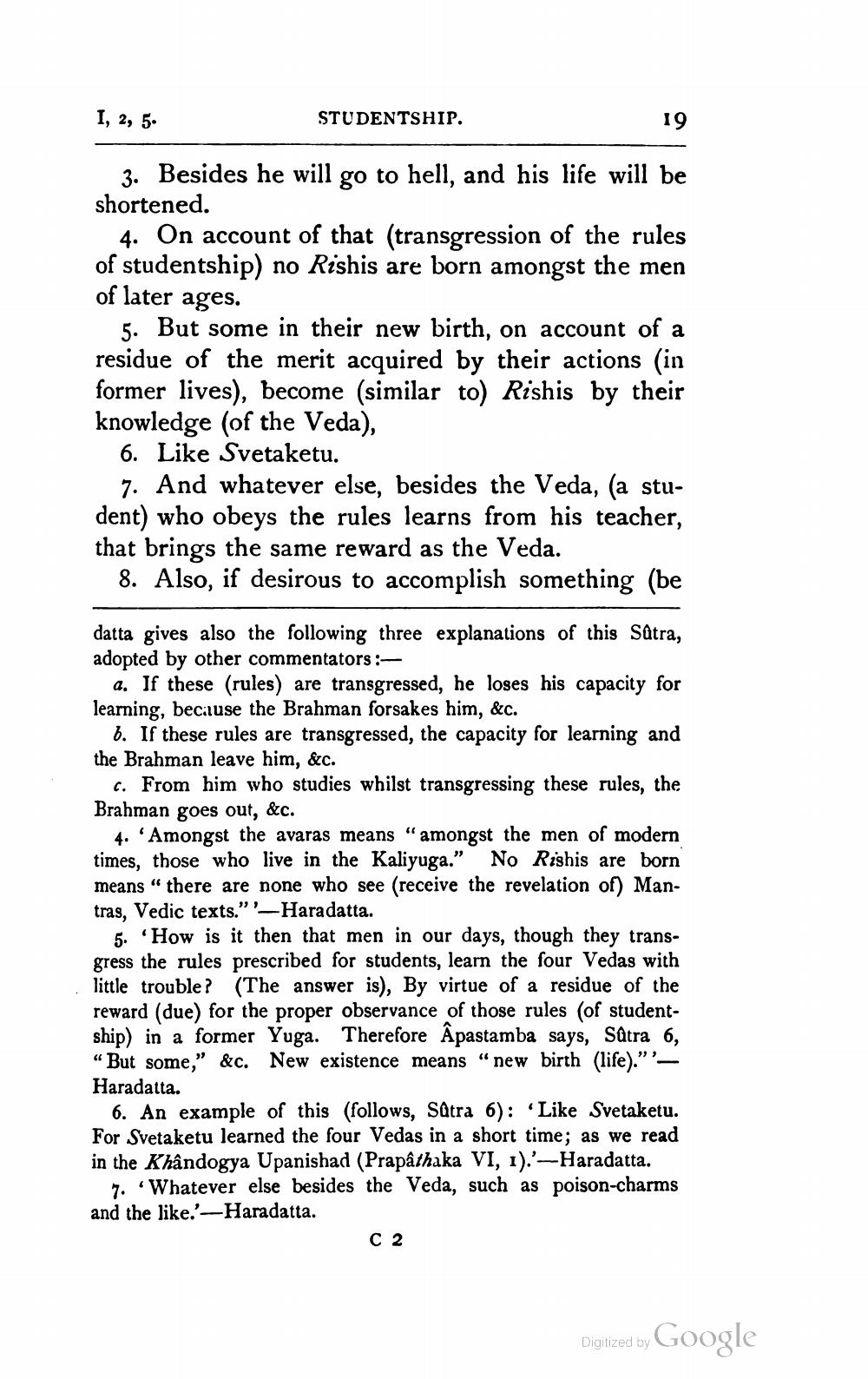________________
1, 2, 5.
STUDENTSHIP.
3. Besides he will go to hell, and his life will be shortened.
4. On account of that (transgression of the rules of studentship) no Rishis are born amongst the men of later ages.
5. But some in their new birth, on account of a residue of the merit acquired by their actions (in former lives), become (similar to) Rishis by their knowledge (of the Veda),
6. Like Svetaketu.
7. And whatever else, besides the Veda, (a student) who obeys the rules learns from his teacher, that brings the same reward as the Veda.
8. Also, if desirous to accomplish something (be
datta gives also the following three explanations of this Satra, adopted by other commentators :
4. If these (rules) are transgressed, he loses his capacity for learning, because the Brahman forsakes him, &c.
6. If these rules are transgressed, the capacity for learning and the Brahman leave him, &c.
c. From him who studies whilst transgressing these rules, the Brahman goes out, &c.
4. 'Amongst the avaras means “amongst the men of modern times, those who live in the Kaliyuga." No Rishis are born means “there are none who see (receive the revelation of) Mantras, Vedic texts." —Haradatta.
5. How is it then that men in our days, though they transgress the rules prescribed for students, learn the four Vedas with little trouble? (The answer is), By virtue of a residue of the reward (due) for the proper observance of those rules of studentship) in a former Yuga. Therefore Âpastamba says, Sætra 6, “But some," &c. New existence means "new birth (life)."'Haradatta.
6. An example of this (follows, Satra 6): Like Svetaketu. For Svetaketu learned the four Vedas in a short time; as we read in the Khândogya Upanishad (Prapathaka VI, 1).'-Haradatta.
7. Whatever else besides the Veda, such as poison-charms and the like.'-Haradatta.
C2
Digitized by Google




